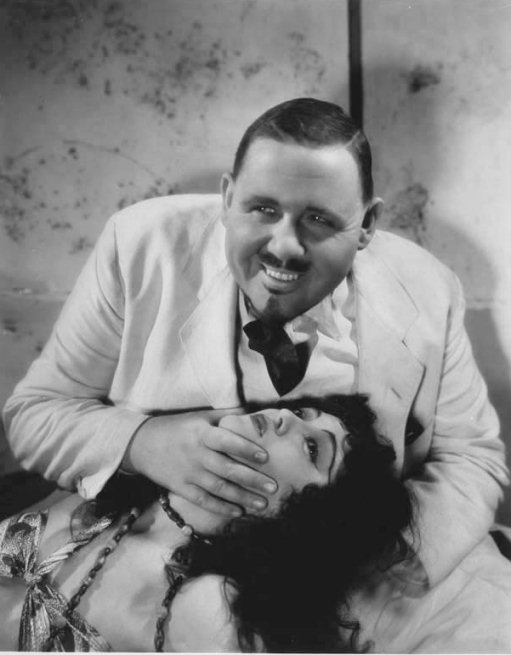Thus you will be forgiven if the think the 1930s were some post-Victorian repressed era because it was 70 years ago or it was during the Depression. Nothing is farther from the truth; if you are a fan of horror movies, it was a golden age, far superior to the modern torture porn we get foisted off on society today.
It was a golden age for science portrayals too; the hero would most likely be an academic while the villain would be a loner, which is its own sort of porn for modern academics who want to believe that is the case today. Some films would be too much and would just barely get shown to audiences before the advent of the Hollywood Production Code. Freaks was so disturbing (ack - actual carnies in a movie) that MGM spent decades hiding it from public view. The UK would not allow it to be shown at all until May 1963, and then with an X rating. Why? It was real people with deformities rather than using costumes and makeup and nothing is scarier than real people(1).
We also got the iconic versions of "Dracula" and "Frankenstein" and other movies that people default to today as the standard images of those characters. The 1930s were also fun for creativity because less was known - suspension of disbelief is easier when science doesn't know the answers. Want to create a Panther Woman? Not a 'cougar' who wants to date younger man, but an actual hybrid? Look no further than "Island of Lost Souls", which I just found out is coming out with a new 'restored' version on DVD, with a few hours of extras not seen in decades.
"The Island of Dr. Moreau" by H.G. Wells was another entry in the Victorian science fiction/horror genre, concerning itself with Darwinian "de-evolution" and sped up evolution of animals into men (and being something of an indictment of vivisection in general) but it was a fun read even though Wells' social reform activism is apparent - he later called it "an exercise in youthful blasphemy."
"The Island of Lost Souls" twists the work of Wells a little by making Moreau completely nuts and introducing the Panther Woman, for no reason anyone can figure out, other than they want a hot girl slinking around seducing the hero of the piece. Some elements remain. The House of Pain is creepy, and they do it without being gory. The mad scientist is mad, in that archetypal way people understand, even if they haven't seen scientists portrayed that way in decades.

Charles Laughton as Dr. Moreau. Maybe a bit over the top for a modern audience who has been trained in postmodern moral relativism, but in the world of 1896, when natural selection was really just being settled, this guy was a real possibility.
The film is best known for being so shocking - and it still is, even today. It is very much not what a modern, smarmy audience thinks about movies of the 1930s, where the belief is filmmakers thought everyone dressed in tuxedos all of the time and lived on cruise ships.
Should you run right out and buy it? It might be on Turner Classic Movies anyway - and $25 for a public domain movie, cleaned up or not, is a bit much, so it might be a little cheaper after Halloween.
Bonus: Given the smaller Hollywood community of the time, famous names like Alan Ladd, Randolph Scott and "Buster" Crabbe are 'manimal' extras. Can you identify them? I certainly cannot.
NOTES:
(1) The real world is still creepy today. Check out this Island of the Dolls:





Comments